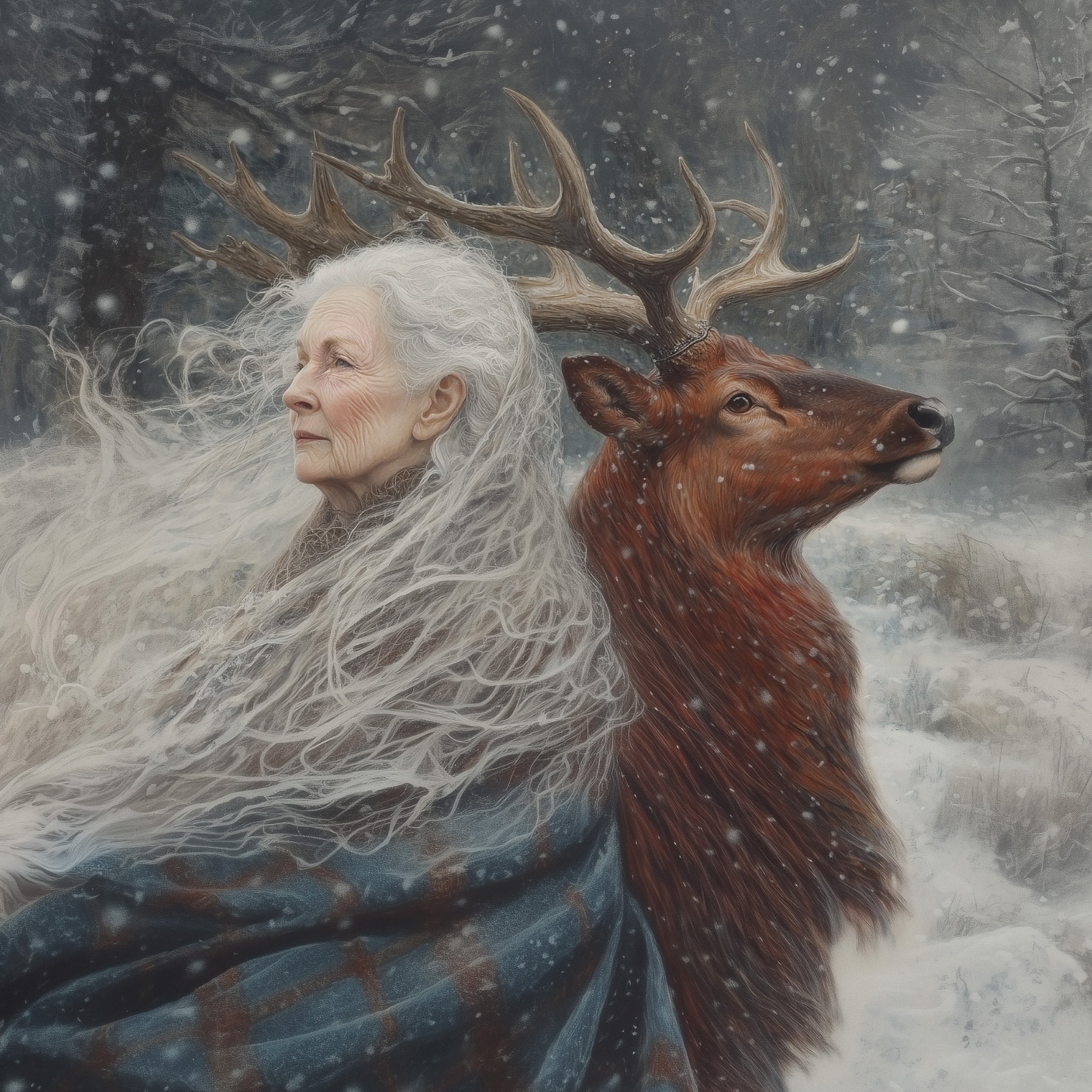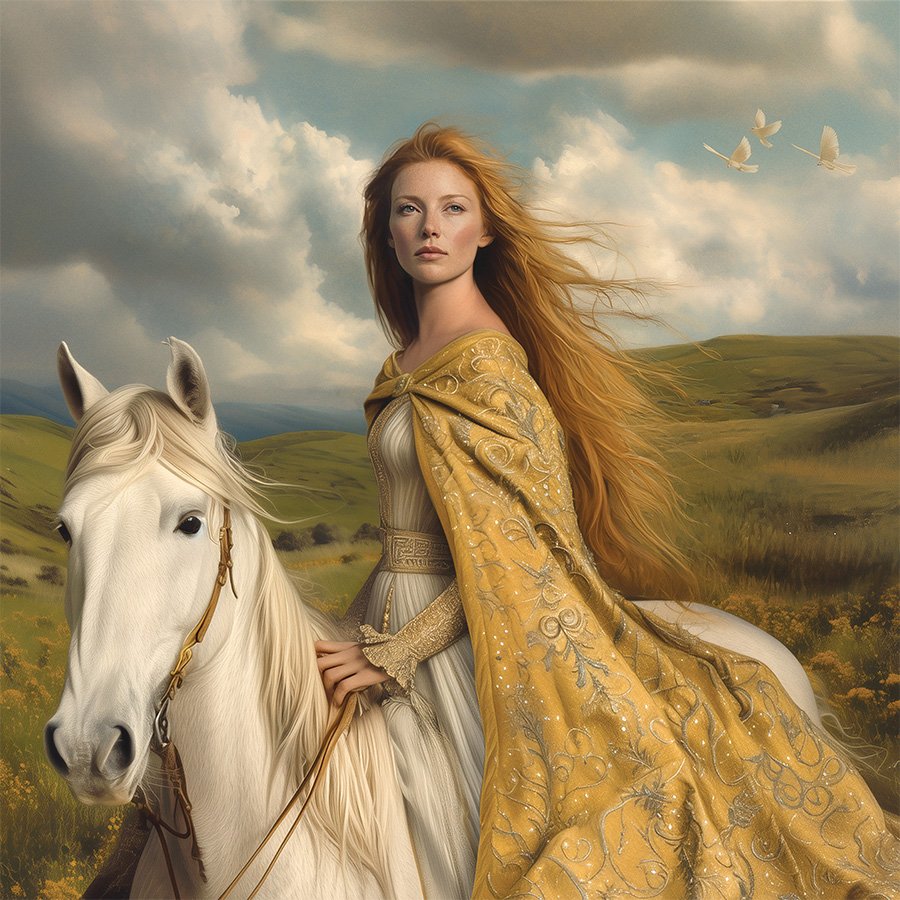The Cailleach
In the heart of Winter, the Cailleach emerges as the ancient goddess of storms and transformation. Her presence reminds us of the power in stillness and the wisdom found in the cycles of nature, urging us to honor the quiet depths before the return of Spring.
Rhiannon
Rhiannon, the enigmatic horse goddess of Welsh lore, emerges from the mists of Annwn, the Otherworld, riding a white steed that no mortal can catch unless she wills it. Choosing love on her own terms, she defies expectations, only to face trials that test her strength and grace. Through unjust accusations and profound loss, Rhiannon endures, embodying the enduring power of the divine feminine and the mysteries that lie between the seen and unseen.
Cerridwen
Continuing Spooky Season with more Dark Goddesses, this time we're delving into Celtic mythology with Cerridwen. A powerful sorceress and symbol of transformation, Cerridwen is renowned for her cauldron of wisdom, which she intended to bestow upon her son but instead became a vessel of profound alchemical change. Deeply connected to the moon, she represents cycles of renewal and the mysteries of existence. In modern Pagan and Wiccan traditions, Cerridwen's cauldron and lunar affiliation underscore her role as a guide to personal growth and mystical insight.
Ostara/Eostre
Ostara, also known as Eostre, was a pivotal figure in ancient Germanic spirituality, representing the arrival of spring and the rebirth of life after winter. Her name, derived from "ostarun," meaning "eastern direction," reflects her association with the dawn and the renewal of light. Symbolized by hares and eggs, Ostara embodied fertility and the promise of new beginnings. Her ancient festival, celebrating the spring equinox, laid the groundwork for modern Easter traditions, illustrating her enduring influence on seasonal celebrations.
Olwen
In Welsh mythology, Olwen is a goddess of beauty, purity, and renewal, her very presence said to cause flowers to bloom in her footsteps. Her name, meaning "white track" or "white footprint," reflects her connection to spring and the natural world's rejuvenation. The tale of her courtship by Culhwch, who must complete formidable tasks to win her hand, underscores her association with the cycles of life and the challenges that lead to growth. Olwen remains a symbol of nature's vitality and the importance of honoring the earth's beauty and abundance.






